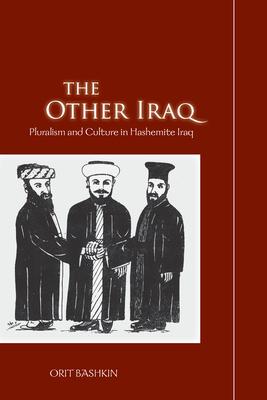The Other Iraq challenges the notion that Iraq has always been a totalitarian, artificial state, torn by sectarian violence. Chronicling the rise of the Iraqi public sphere from 1921 to 1958, this enlightening work reveals that the Iraqi intellectual field was always more democratic and pluralistic than historians have tended to believe.
Orit Bashkin demonstrates how Sunni, Shi'i, and Kurdish intellectuals effectively created hyphenated Iraqi identities, connoting pride in their individual heritages while simultaneously appropriating and integrating ideas and narratives of Arab and Iraqi nationalism. Illustrating three developmental stages of Iraqi intellectual history, she follows Iraqi intellectuals' changing roles, from agents of democracy, to specialists who analyze the population, to deeply entrenched members of society committed to change. Based on previously unexplored material, this eye-opening work has significant contemporary implications.
